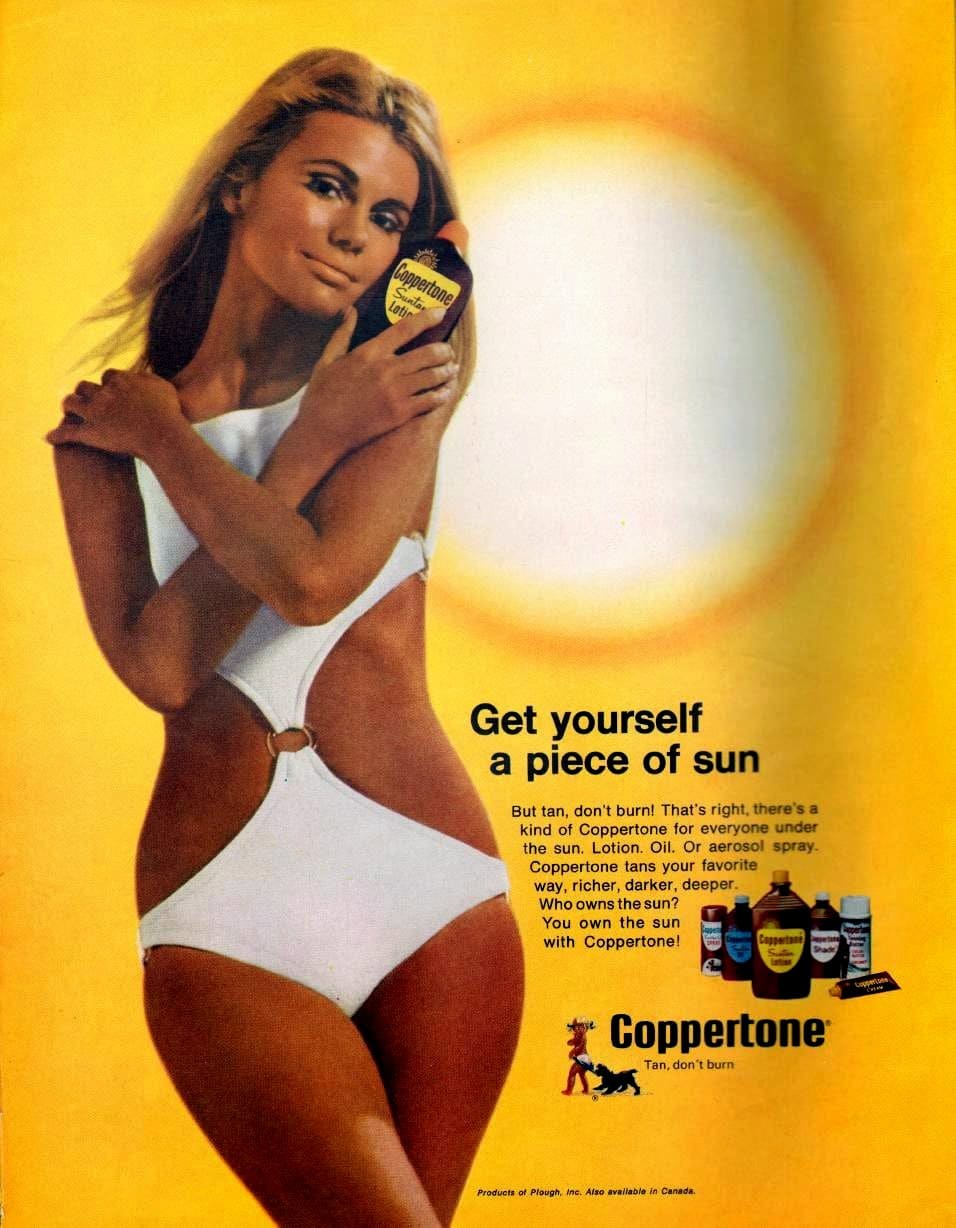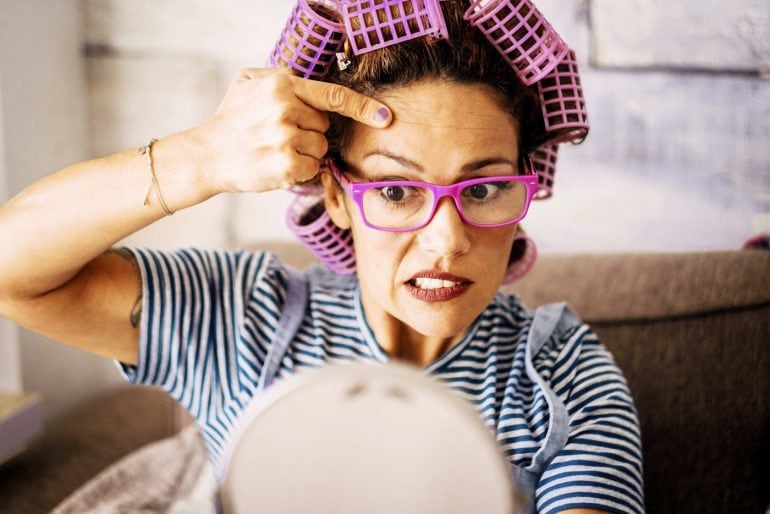It’s not something we love to admit, but a whole lot of us Gen Xers are kind of freaked out about the idea of looking old — whether that means looking our actual age, or even older than we are.
Although we all know that the body + time doesn’t work that way, it’s human nature — aka common vanity — to want to stay as fresh-faced as we were in high school.
So what causes premature aging of the skin — or even just regular signs of aging? And what can you do about it?
Why we so often look older than we feel
The visible signs of aging result from a combination of both internal and external factors that affect your skin over time, according to California’s UC Davis Department of Dermatology.
Internal factors are those caused by our genetics, hormones, and even the anatomy of our faces. Sun exposure is considered the most important external factor, although smoking, diet, drug use, environmental toxins, illness, disease and your overall health can also affect the skin’s appearance.
To add insult to injury, our skin loses collagen and elastic tissue as we age — thereby minimizing the body’s ability to counter gravity — usually resulting in wrinkles, folds and sagging skin.
“While the body has an amazing ability to repair damage and restore cells to their normal function,” UC Davis notes, “repeated exposure leads to accumulated damage that can overcome the body’s ability to repair it. As a result, our skin ages as these exposures accumulate over our lifetime.”
7 ways you can help reduce the signs of aging
Here are some tips from the American Academy of Dermatology about things you can realistically do to help minimize the affect of aging on your skin.
Wear sunscreen every day, because the sun’s rays can speed up signs of aging. Use a sunscreen or facial moisturizer that offers broad-spectrum protection and has an SPF of at least 30, and is water-resistant. Be sure to apply sunscreen to all skin that is not covered by clothing.
UC Davis’ dermatologists also note that such products aren’t just for light-skinned people. “Darker skin types need protection from the sun to avoid conditions like pigmentary disorders and acral lentiginous melanoma.”
Don’t get a tan. We grew up in an era where the Coppertone girl was held up as the pinnacle of beauty. That is, at least, while she was still young.

Then we learned about the downfall of a “richer, darker, deeper” tan.
Getting a tan — no matter if it’s from the sun or a tanning bed — exposes you to harmful UV rays that can accelerate aging, causing wrinkles, brownish age spots, a blotchy complexion, and even skin cancer. Apply self-tanner rather than get the real thing.
Cover up, hot stuff! When you go outside, wear a wide-brimmed hat, pants, and long sleeves whenever possible. For more effective protection, look for clothing with an ultraviolet protection factor (UPF) label. Gloves can help minimize common signs of aging on your hands (like age spots — those things your grandma called liver spots).
Wear sunglasses outside during the day to help reduce fine lines around the eyes caused by squinting in the bright sunlight. (Wear your sunglasses at night? You don’t have to go that far.)
Clean your skin gently. Scrubbing your skin clean can irritate it, which often skin accelerates skin aging. Gentle washing helps to remove pollution, makeup, and other substances without harming your skin.
Moisturize. Moisturizing traps water in the skin, which can help reduce the appearance of some fine lines, and make your complexion look brighter and younger.
Stop smoking. Tobacco smoke contains toxins that can lead to smoker’s face. Signs of smoker’s face include dull and dry complexion, loss of skin’s firmness, premature lines and wrinkles, and leathery skin.
Cut back on the booze. Alcohol is rough on the skin. It dehydrates the skin, and in time, damages it… making us look older.
Eat a healthy, well-balanced diet. A few medical studies suggest that eating plenty of fresh fruits and vegetables may help prevent damage that leads to premature skin aging. Findings from research studies also suggest that a diet containing lots of sugar or other refined carbohydrates can accelerate aging.
Get enough sleep. It’s called beauty rest for a reason. Sleep gives your body time to refresh and renew itself, inside and out.
Anti-aging products that might help you out
Centuries ago, explorer Ponce DeLeon is said to have searched in vain for a “Fountain of Youth.”
Though we might not be exploring distant lands in our quest today, we still explore store shelves, sail through a tide of TV and radio ads, and navigate the web for magical elixirs to help us maintain a lean, strong body and smooth, wrinkle-free skin.
While nothing works for everyone — and, most definitely, some products don’t actually work for anyone — there are some products and practices that can help make the inevitable process of getting older a little less obvious.
“People often think that the more expensive a product is, the more effective it will be,” said board-certified dermatologist Susan C Taylor, MD, FAAD, founding director of the Skin of Color Center at St Luke’s and Roosevelt Hospitals in New York City. “That’s not always the case. People need to shop smart since there are some very effective, affordable products in the skincare aisles of their local stores.”
To get the most from age-fighting products, Dr Taylor recommends you also follow these tips:
Test products, even those labeled “hypoallergenic.” To test, dab a small amount of the product on your inner forearm twice a day for four to five days. If you do not have a reaction, it is likely safe for you to apply to your face.
Use products as directed. Active ingredients can do more harm than good when too much is used. Applying more than directed can cause clogged pores, a blotchy complexion or other unwanted effects.
Stop using products that sting or burn unless prescribed by a dermatologist. Irritating the skin makes signs of aging more noticeable. (Some products prescribed by a dermatologist may cause stinging or burning. When under a dermatologist’s care, this can be safe and effective — just be sure to let them know so you can make sure it’s normal.)
Limit the number of products. Using too many products on your skin, especially more than one anti-aging product, tends to irritate the skin. This often makes signs of aging more noticeable.
Be patient with your skin. “It’s very important that people allow time for the product to work. While a moisturizer can immediately plump up fine lines, most products take at least six weeks to work, and sometimes it can take three months,” said Dr Taylor.
In the end, however, there’s only so much anyone can do to counter the effects of time.
A medical review published in the International Journal of Women’s Dermatology in 2021 noted, “Antiaging skin care advertisements can make it seem as though there is a simple, cure-all solution to aging. The reality is that even the best of procedures and cosmeceuticals will only have a temporary effect.”
And, the authors added, “Although dermatologists can ameliorate some cutaneous changes of age, it is not possible to reverse the process of aging in and of itself.”








